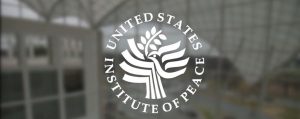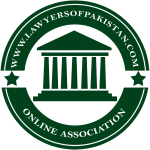“THE RICH GET RICHER AND THE POOR GET PRISON”
“Legal empowerment is the process through which the poor become protected and are enabled to use the law to advance their rights and their interests in relation to the state and the market. It is a country and context-specific approach that takes place at both the national and local levels”.
Delivering the Promise of the Law
The Legal Empowerment Program is the solution for all the communities in Pakistan, all the mediocre or lesser will be irrigated with this project, which will help the nation to grow better. So, it’s started by our organisation, we combine our work on strategic litigation with efforts to work with and mobilize those most harmed by rights abuses. We have partnered with lawyer groups and other communities in Punjab, Sindh, KPK and even in Balochistan seeking to secure legal rights guaranteed to them by court rulings and existing law.
Expanding Access to Justice
If we’ll assist governments to develop systems that provide legal aid for criminal and civil issues, supporting community-based paralegals and university, school law clinics to develop low-cost legal advice or free. We can assist citizens in all the villages, towns & cities of Pakistan through our innovative Online Legal Program or Social Work by our community of Law Students.
Justice and Development
We advocate for international recognition of the importance of access to justice, we’ll soon develop a system of justice that will easily accessible by all the nation, to create a sustainable environment.
How can we Empower?
We as a legal association strongly believe that we can provide a better environment for the communities in Pakistan, we’ve to go door to door, villages, towns, schools to colleges, universities for just public awareness about laws. So, when they know their rights they can get justice easier. Keeping in mind all these legal needs of our society, we will sooner or later introduce something special which will perform all these duties.

Women Empowerment in Pakistan by USIP
There are a variety of contexts in which the empowerment of women in Pakistan can be considered, but none is more critical than law: How women’s legal rights are framed is fundamental to considering how best to advance women’s empowerment. After situating women’s legal rights in Pakistan, this Special Report reviews key features of recent legislation affecting women’s rights explores the controversies surrounding this legislation and elaborates on ongoing challenges to develop further legislation, particularly in light of opposition from Islamist groups.
Summary of USIP
The history of laws affecting women’s rights and empowerment in Pakistan involves a complex pattern of advances and setbacks, with the state’s efforts to articulate a definition of women’s rights complicated by the need to balance divergent views on the place of women in Pakistani society.
After General Pervez Musharraf’s 1999 coup, a number of factors, including international perceptions of Pakistan, brought women’s rights, greatly curtailed by General Zia-ul-Haq’s Islamization project, to the fore. Most critical among the changes to women’s rights during this period was the 2006 revision to the Hudood Laws, resulting in the Protection of Women Act.
The incumbent Pakistan People’s Party government has passed several important pieces of legislation continuing the progress for women’s empowerment made under Musharraf. These new laws focus on sexual harassment at the workplace, anti-women practices, and acid throwing. Additionally, the National Commission on the Status of Women has recently achieved elevated status.
Despite these advancements, new legislation is needed to address ongoing challenges such as women’s ability to control inherited land and human trafficking. If the Pakistani state is to make lasting improvements on these and other challenges facing the legal status of Pakistani women, it must find solutions that will not only benefit women in the country but create consensus among Pakistanis on the best and most achievable way to prioritize global rights for women while adhering to Islamic precepts.

2 thoughts on “Legal Empowerment in Pakistan”
Let’s talk about this legal question?
Ask us?